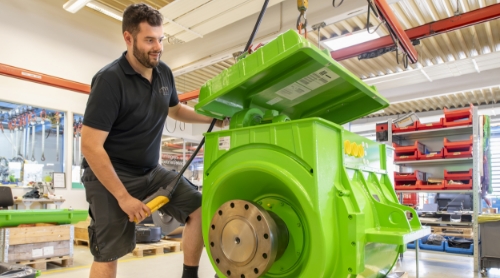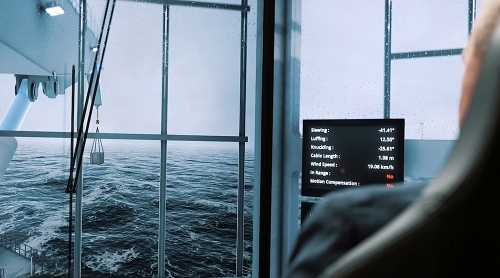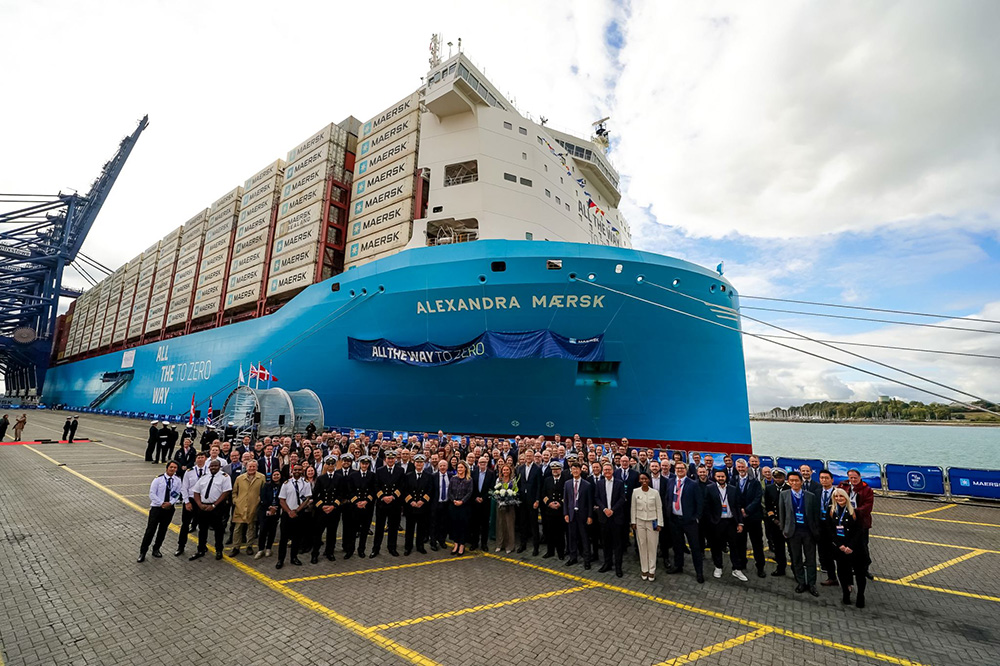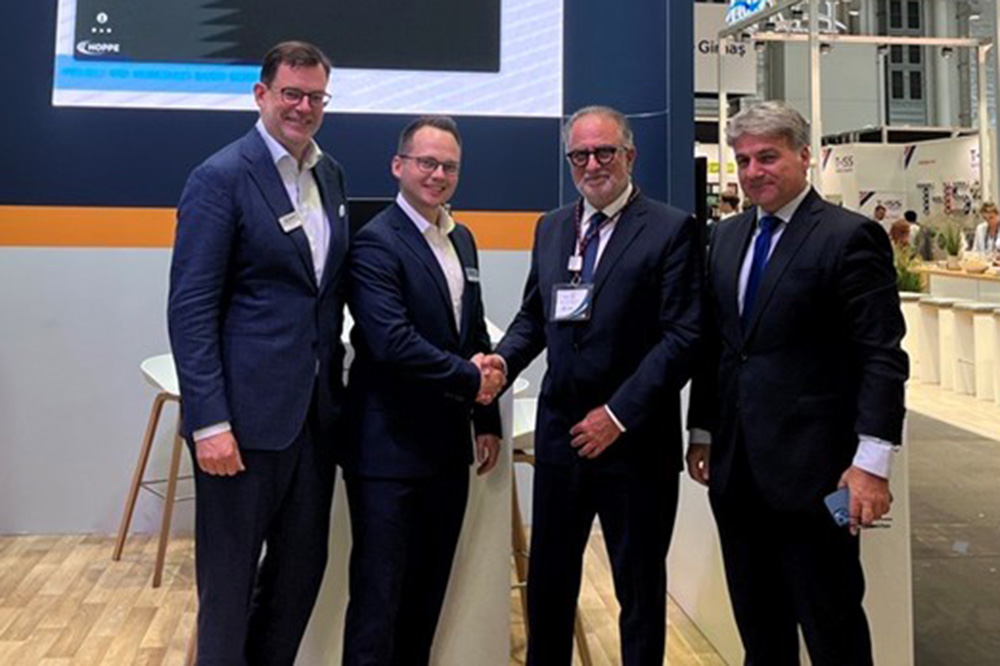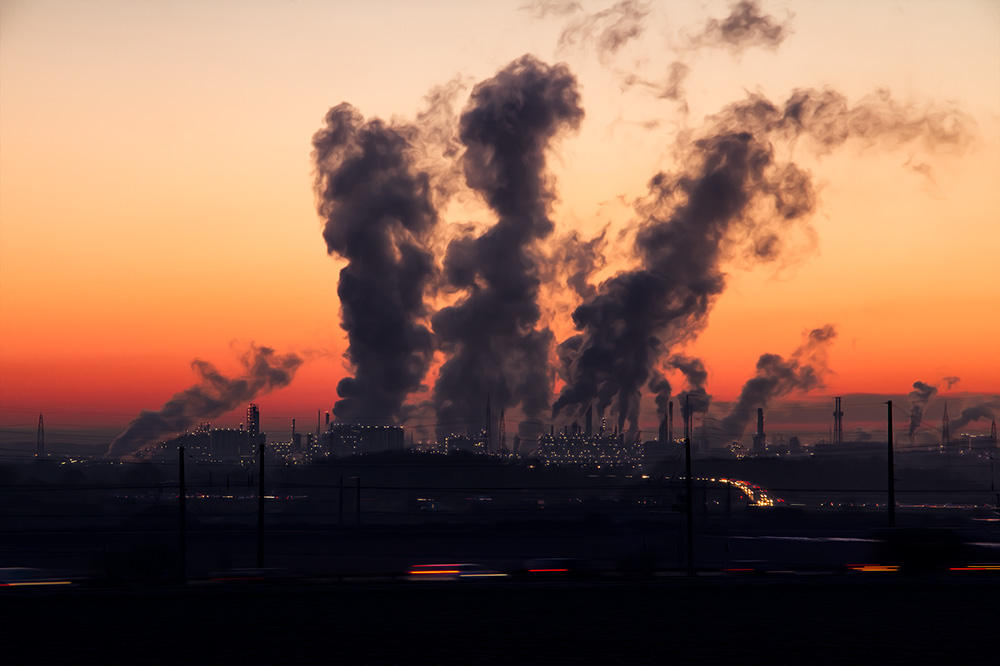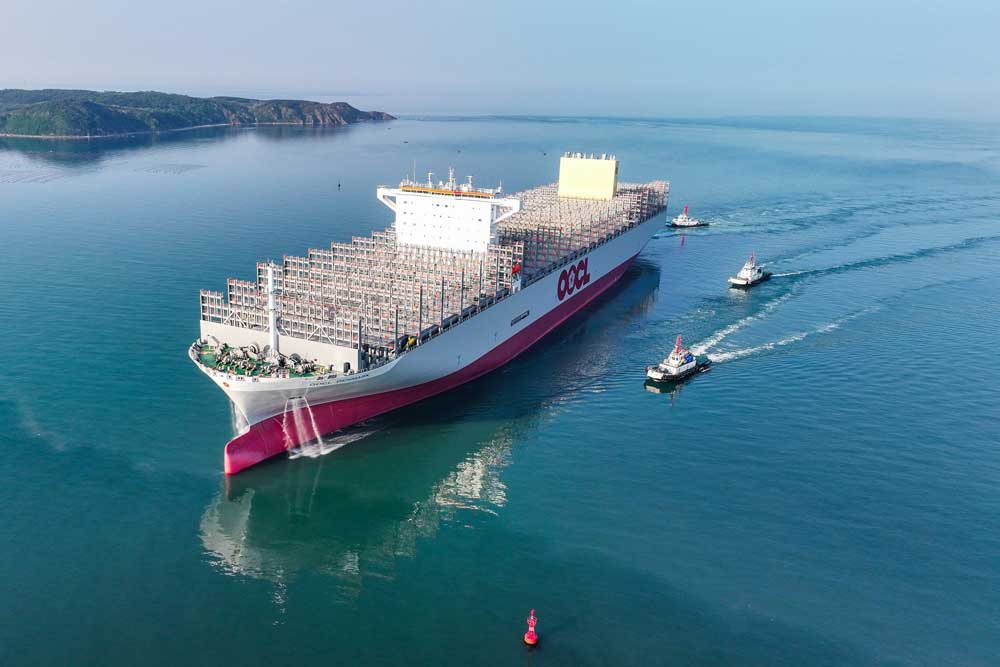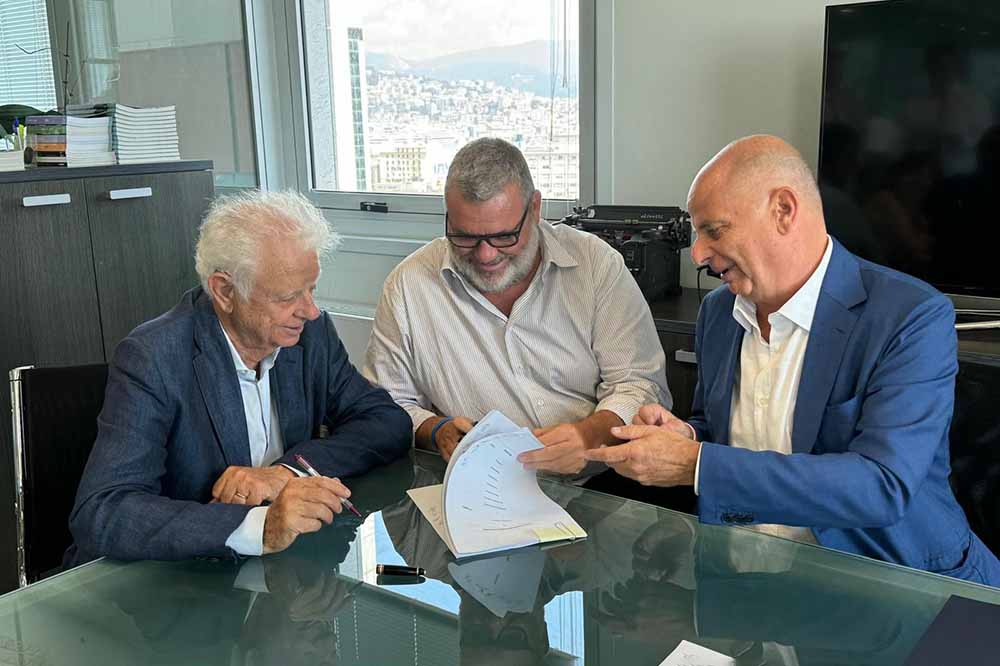Heavylift shipping company SAL, which belongs to the Bremen-based Harren Group, has ordered a fifth newbuild of the “Orca” series in China.
Harren is once again expanding the fleet of new heavy-lift vessels for the Hamburg-based shipping subsidiary SAL. In September last year, the first four ships were ordered together with the Dutch shipping company Jumbo. Both companies are part of a Heavylift alliance. [ds_preview]
At the recent Marintec trade fair in Shanghai, a fifth ship was ordered from Wuhu Shipyard (China). The name for the new addition has already been decided: the youngest Orca ship will be christened “Vera” when it is delivered in mid-2025.
Keel already laid for second “Orca”
Parallel to the new investment, the keel of the second ship in the Orca class, the “Frida”, was also laid last week. The Orca class paves the way for a greener and more sustainable maritime future in the MPP segment, it is said.
All newbuilds will be equipped with variable-speed methanol-capable engines from Wärtsilä that can run on methanol fuel. The equipment also includes an energy storage system, a PTO/PTI generator, a multidrive converter and Wärtsilä’s energy management system.
The energy storage system (ESS) is based on lithium titanium oxide (LTO) batteries, which are more powerful than normal lithium-ion systems. It can be used in combination with shore power for all-electric port operations. At the same time, it can be used as a booster at sea to reduce consumption and fluctuations in engine load.
Fewer emissions on “Orca” ships
At a service speed of 15 knots, the ships will consume significantly less than 20 tons of fuel oil per day – comparable to much smaller MPP ships. The maximum possible speed is 18.5 knots.
The ships measure 149.9 m x 27.2 m and have a carrying capacity of 14,600 dwt. They also have ice class 1A, Polar Code certification and a reduced design temperature for the hull and equipment. According to the information provided, this enables the ships to be used safely even in cold conditions.
The NOx emissions are reportedly 10% below the IMO Tier 3 level, and the EEDI Phase 3 limits for CO2 emissions are even 21% lower. Funding from the federal programme for the “Sustainable Modernization of Coastal Vessels” was approved for all newbuildings.









